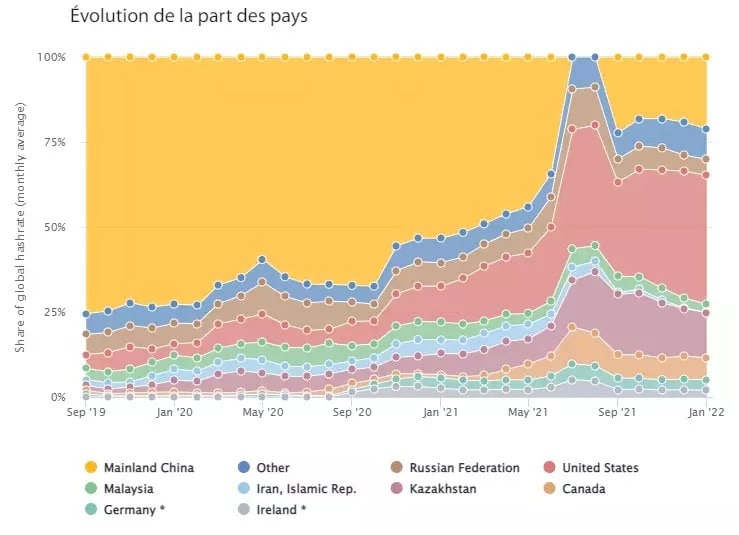The activity of cryptocurrency miners would represent more than 2% of Russia’s electricity consumption, according to its government. This figure is prompting the country’s officials to question the regulation of the activity.
Russia faces consumption by cryptocurrency miners
In Russia, the activity of cryptocurrency miners would consume more than 2% of the country’s energy needs. At least, this is what Vasily Shpak, the Russian Deputy Minister of Industry and Trade, says:
“Do you know how much mining accounts for in the overall map of electricity production in our country? I tell you: more than 2%. This is more than the cost of electricity for agriculture. We can only recognise mining […] as an […] industrial activity.”
He also states that the sector is operating in a “grey area” from a regulatory point of view. As a result, he points out that mining is not taxed and that its actors are exposed to risks, without specifying the nature of these risks.
With miners accounting for 4.7% of the world’s hashrate, Russia is said to be the 6ᵉ largest country in the Bitcoin network (BTC):

Percentage of Bitcoin hashrate by country
The asterisks for Germany and Ireland in the above chart mean that these values would be skewed by a change of IP address by miners from other countries.
Recall that while in January, Russia’s central bank called for a ban on mining, Vladimir Putin opposed this recommendation on economic grounds.
The role of mining in energy consumption
With the growing interest in Proof-of-Stake (PoS), Vasily Shpak hopes for a lower energy consumption of our ecosystem in the future. However, he still maintains the importance of regulation of the sector:
Nevertheless, it is obvious that […] in one way or another, they will consume energy, it is a technological activity. Our position here is clear: mining must be recognised, regulated and integrated into industrial activity. “
While the power consumption of mining is a reality, it must be considered in its entirety.
To achieve a competitive production cost, miners tend to use production inefficiencies to their advantage. This means that if a hydroelectric dam generates too much electricity compared to local demand, a miner may, for example, choose to move to the region in order to benefit from cheaper electricity.
Because of the oversizing of production equipment to meet peak demand, such opportunities are frequent and make miners mobile according to the season. Where, with a selective vision, mining was an energy sink, it now becomes a tool to fight against waste.
In other words, there is no evidence that industrial mining consumes the electricity it needs at the expense of other strategic sectors, contrary to what may be implied in Russia or anywhere else in the world.
